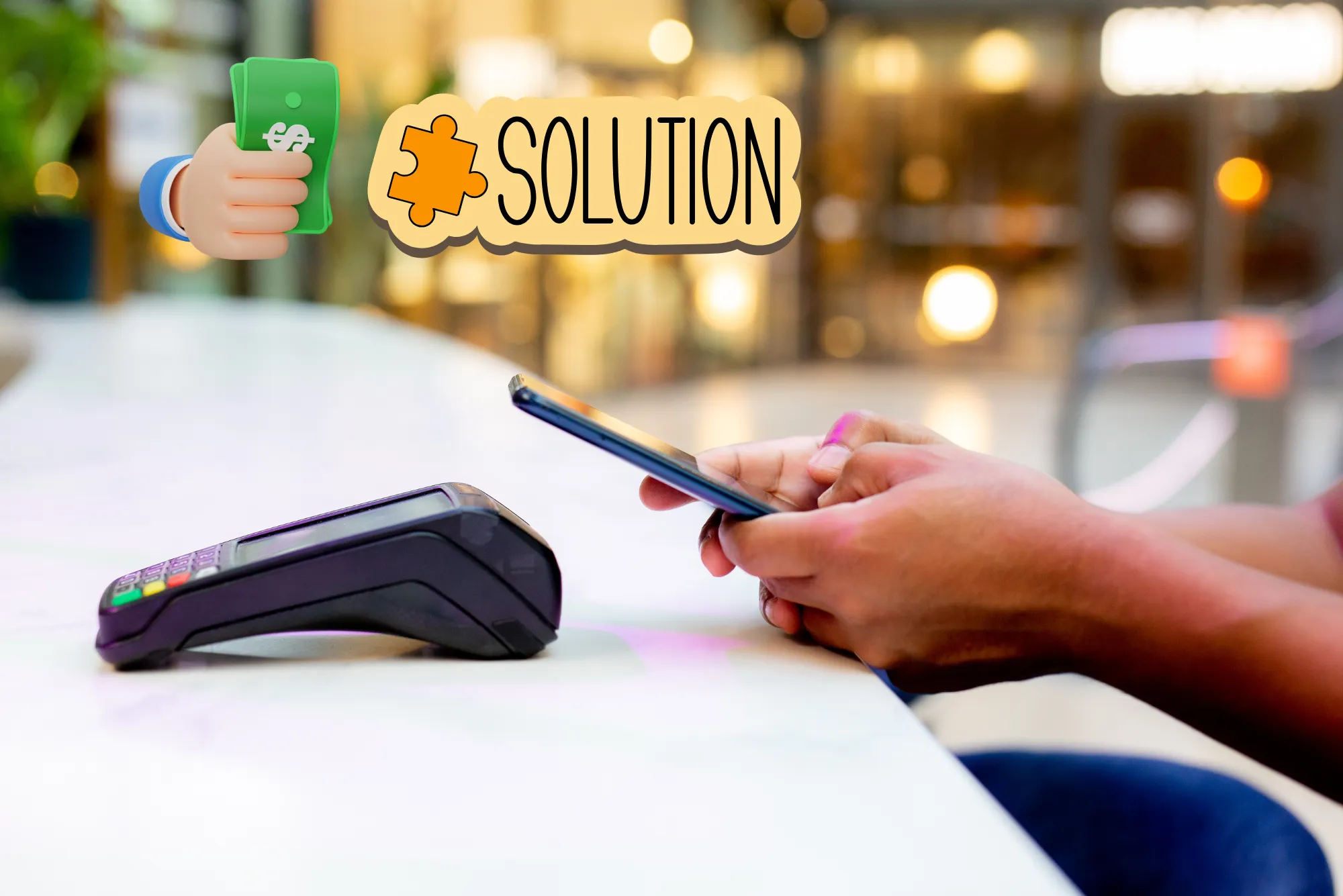Right now, the UAE offers many online payment solutions. What does the government do to motivate businesses to evolve and create new payment methods? And why is it best to use the right payment gateway in the UAE?
Based on GMI’s research, the United Arab Emirates is considered one of the most progressive countries in the world, and this is thanks to its dedication to supporting innovation and collaboration. From virtual bank accounts to the best platforms for shopping online, the country boasts a variety of technological solutions capable of impressing everyone. This guide provides more details on payment solutions in the UAE and how they are evolving.
Introduction & Market in the UAE Overview
The United Arab Emirates is considered one of the most technically advanced countries in the world, with an economy with GDP exceeding USD 500 billion. The government supports businesses via funding, regulatory incentives, and infrastructure, and encourages talent retention through favorable conditions.
Numerous online payment gateways are being created, and many UAE platforms offer reliable online payment solutions that support global payments and local transfers. Because of such factors as the e-commerce boom, smartphone adoption, and fintech growth, many rely on online payments and instant transfers, which is why both the UAE government and its businesses work hard to create new, even better solutions that would make the payment process even better and safer.
Core Payment Methods, Solutions & Technologies
What payment methods and technologies are the most popular in the UAE? Here is the list:
- Cards. This is still one of the most popular modern payment methods, and it is both convenient and relatively safe. You can use credit and debit cards both in-store and online.
- Wallets. Digital wallets are another universal payment method widely used in the UAE. They offer an easy payment process and are a bit safer to use, as there is never a physical copy of an e-wallet, making it harder to steal data.
- Bank transfers are money transfers between accounts without any intermediaries. Typically, you must register with a bank to either make or receive a transfer.
- Mobile payments. This type of payment method requires a phone and can be made through NFC, QR codes, or special mobile payment services. Both banked and unbanked users can access this method.
- Automated e-invoicing is an exchange of invoices that doesn’t require any manual input.
- BNPL (Buy Now, Pay Later) is often a payment method available on different platforms that allows customers to split their purchase into smaller payments instead of making a single direct payment.
From e-commerce businesses to brick-and-mortar stores, businesses in the UAE have a wide range of options for accepting payments. However, one of the most important things to consider is a payment gateway, which is crucial for any online store or service. Today, they can easily choose the best payment gateway that helps them provide customers with a safer and more seamless payment experience.
Regulation & Compliance Solutions
The Central Bank of the UAE (CBUAE) plays a crucial role in regulating the safety of payments in the country and ensuring compliance with all individual solutions. One of the main responsibilities of the CBUAE is issuing licenses for payment services providers and overseeing fintech businesses and their actions.
Any provider of retail payment services must obtain the appropriate license under the Central Bank’s Retail Payment Services and Card Schemes Regulation (RPSCS) and fulfil verification requirements. Moreover, licensed PSPs must adhere to strict compliance measures, including Anti-Money Laundering, Know Your Customer, and Payment Card Industry Data Security Standard regulations.
Whenever a new e-commerce platform decides to introduce a new payment method or a payment solution that appears in the market for the first time, it first has to go through a difficult process that ensures the safety of potential customers.
Payment Infrastructure & Ecosystem in the UAE
One of the most notable things about the UAE’s economy is how advanced and inclusive its payment infrastructure is. One example is Aani, one of the national systems launched under the CBUAE’s supervision, along with many other projects. The system supports online payments and transfers between banks and wallets, which enhances the speed and convenience of digital payments.
The country’s payment infrastructure is very interoperable, connecting banks, fintechs, and merchants through API integration and unified systems. This allows users to make faster local and international payments, complete online transactions in just a few seconds, and access various payment platforms faster.
The UAE’s model offers a hybrid approach, where digital innovation is supported by traditional banking to provide its customers with a secure online and offline experience. Many initiatives have already been launched, including systems like Aani, which have forced businesses to move toward interoperability.
Key Challenges
In the UAE and beyond, despite technological advancements, there are still many problems. Here are some of them:
Security and fraud prevention
While both government and businesses work hard to ensure the safety of everyone, it’s still important not to disclose any info about your bank accounts or card details, follow only trusted payment links, and use a reliable payment gateway. For example, Telr, a UAE-based gateway, recently obtained a Retail Payment Services license. Amazon Payment Services is active in certain markets in the region and offers secure solutions.
Cross-border and integration complexities
For many payment platforms, it’s difficult to balance seamless integration of all features and cross-border payments, as every country operates under different laws. This is why not every e-commerce platform offers a secure and scalable payment system, as handling international transactions is not something every business can do.
Balancing innovation with compliance and user experience
E-commerce platforms like Shopify or easy-to-integrate payment systems like Apple Pay might find it easier to stay compliant and innovate, but smaller businesses might not be so lucky. Ensuring complete compliance with all laws requires a lot of hard work.
Businesses looking to expand globally must do much more than introduce support for multiple currencies. From choosing a gateway that guarantees customers’ safety to building a 100% payment page, there is always a lot to be done.
Payment Solutions: Opportunities & Trends
There are many new opportunities and trends, from creating new solutions for supporting the already existing payment gateway infrastructure to cross-sector collaborations across the MENA region:
- Fintech expansion and regulatory support. The UAE’s fintech sector is growing extremely rapidly. With the support of the Central Bank, businesses in this industry can easily create their own new payment options and solutions for fast local and international transactions.
- CBDC pilots and digital dirham initiatives. The Central Bank of the UAE is running pilot projects for the Digital Dirham — a central bank digital currency initiative aimed at improving cross-border payments and reducing transaction costs.
- Emerging tech. With AI-based fraud protection, many payment systems have become even safer. Automation is making payments online even faster. Embedded payments are also making it easy for businesses to accept payments on their platforms.
- Collaborations. New collaborations introduce limitless opportunities for customers to make payments easier, faster, and safer. Cross-sector alliances are fueling innovation and inclusion, strengthening the UAE’s role in international trade.
An incredible variety of initiatives that create new integration options, online shopping platforms, and safer payment services have made the UAE one of the top countries in the fintech and IT industries.
Best Practices for Businesses
Here are some tips for businesses in the UAE on how to ensure that customers are always safe and satisfied:
- Select a suitable payment gateway in the UAE. It’s important to choose the gateway that works best for your target market, transaction volume, and business model. Payment services like TELR, Amazon Payment Services, or Noon Payments are an excellent choice for businesses. Search for a list of payment gateways in the UAE, and learn the rating of each to find out which one is the best.
- Supporting diverse, secure payment options. When it comes down to choosing the right payment method, customers are more likely to use services that offer more than just one option.
- Streamline APIs and compliance for smooth onboarding. Use PCI DSS-compliant gateways with strong encryption and fraud detection to protect customer data.
- Stay updated with local regulations. Using a payment gateway ensures the safety of your customers, but it is still important to stay up to date with the current changes in laws to ensure that your online business never puts clients in danger.
- Monitor performance and analytics. Track transaction success rates and trends in the digital payment space to see how you can improve your payment experience for an online shopper.
One of the best practices is to adopt a trusted, regionally compliant payment gateway that supports multiple methods and ensures PCI-DSS compliance, encryption, fraud detection, and smooth API integration.
Conclusion & Outlook of Payment Solutions in the UAE
The UAE is increasingly positioning itself as a leading digital payments hub in the MENA region, driven by strong government support, regulatory clarity, and infrastructure initiatives. Many businesses in the UAE are not afraid to introduce new flexible payment systems or accept online payments on platforms that may not be used worldwide yet. Businesses that serve customers in the UAE do a lot more than just accept payments; they also support multiple payment methods, ensure that the checkout process is as clear and safe as possible, make the payment form easy to access, and provide their clients with the seamless experience they enjoy. Thanks to its commitment to innovation, collaboration, and financial inclusion, the UAE has a strong presence worldwide and is respected by citizens and foreigners.












